Illinois state Comptroller Susana Mendoza is accusing Mayor Lori Lightfoot of failing Mendoza’s brother and other Chicago cops by instructing her appointees to a police pension board to vote against approving a “duty disability” that would provide pay and health insurance to officers facing career-ending COVID-19 complications.
“I never thought the city of Chicago would betray our officers like that,” Mendoza said in an interview. “I told her that not only did you not have my brother’s back and any other police officers like him, you stabbed him in the back, and you twisted it into his heart. And you did the same to me.”
Asked about Mendoza’s comments, a Lightfoot spokesperson said of the mayor that Chicago cops “have her unwavering support.”
Sgt. Joaquin Mendoza, a Chicago cop for 22 years, was hospitalized for 72 days and lost the use of his kidneys and his left arm after contracting the coronavirus on the job, according to his lawyers. They say he hasn’t been able to work since getting sick in November 2020, before COVID-19 vaccines were available.
He sought a duty disability that would have provided 75% of his regular salary and free health care — rather than an “ordinary disability” providing 50% of his salary and no health care and is phased out after five years.
On Feb. 24, 2022, the Chicago police pension board voted 4-3 to deny Mendoza a duty disability and awarded him an ordinary disability.
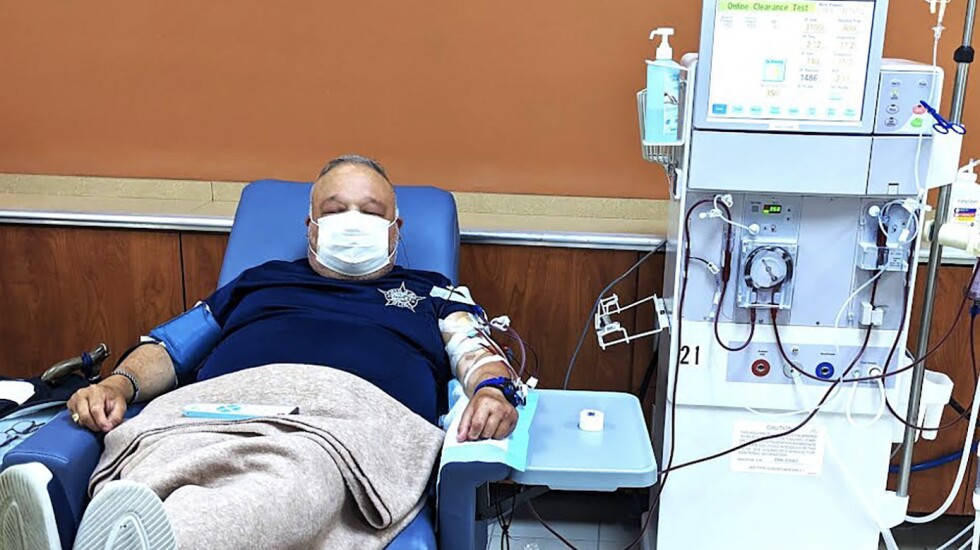
Since then, the board has denied a duty disability for another officer who got COVID. At least 18 other Chicago police officers have similar requests pending, according to Mendoza’s attorneys.
Joaquin Mendoza filed a challenge to his duty-disability rejection in Cook County circuit court but lost. Judge Thaddeus Wilson agreed with the pension board, ruling Jan. 30 that Mendoza had “failed to show the act leading to his disabling injury was mandatory.” The sergeant’s attorneys were expected to appeal Wilson’s ruling Tuesday.
They have pointed to other situations in which cops were awarded duty disabilities after, for instance, injuring a knee riding a bicycle.
They also say state law presumes that police officers who die of COVID got the disease as an act of duty.
Susana Mendoza says she’s pushing for legislation to allow cops disabled by the disease to get that same presumption. A bill to do that was filed Friday in the General Assembly.
“Officers are almost being punished for not dying,” according to Ralph Licari, one of Joaquin Mendoza’s lawyers.
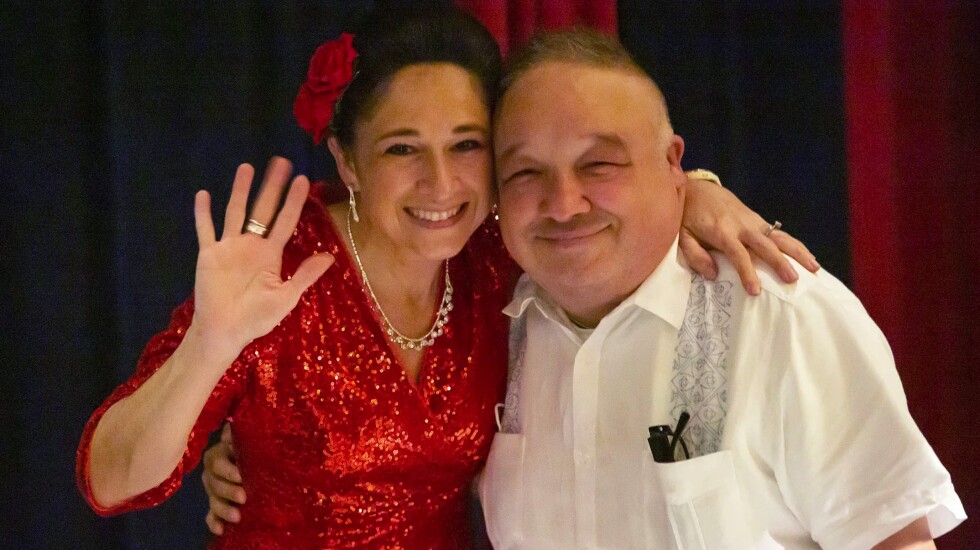
Susana Mendoza said she is furious that Lightfoot’s appointees to the Policemen’s Annuity and Benefit Fund of Chicago, the pension board, voted against her brother.
Those who voted “no” include Susie Park, the city budget director; Stephen Skardon, the city’s chief risk officer; and Melissa Conyears-Ervin, the city treasurer. The mayor appointed all three to the board.
Michael Stiscak, a police lieutenant who isn’t a Lightfoot appointee, also voted “no.”
The “yes” votes came from Wayne Metcalfe, a patrol officer; Michael Lappe, a retired officer; and John Lally, a retired sergeant.
“It was the mayor and her handpicked board that made this decision knowingly,” said Susana Mendoza, who ran unsuccessfully for mayor against Lightfoot in 2019 but said she considered herself an ally until the pension decision. “They knew that they weren’t going to approve police officer COVID [duty] disability claims.”
Mendoza holds Lightfoot “100% accountable.”
“Anyone who knows anything about how those pension funds run knows that the mayoral appointees work only at the behest of the mayor and take their marching orders from the mayor,” Mendoza said.
She said she saw Lightfoot at a Hispanic American Construction Industry Association banquet at the Hilton Chicago on March 8, 2022, a few weeks after the pension board rejected her brother’s duty-disability request. The mayor was a keynote speaker. According to Mendoza, she and the mayor had a brief conversation at the Hilton in which Lightfoot asked whether she could “try to fix it.”
“And I told her, ‘You can’t fix it. The decision is made,’ ” Mendoza said. “She asked me why I didn’t call her. I told her that I thought that was inappropriate for me to have to call and let her know about my brother going before the board, that I didn’t want any special favors for my brother. I just wanted justice for my brother and for any other cop.”
According to Lightfoot’s spokesperson, the mayor first learned of the situation from Susana Mendoza “at a social event” and “after the police pension board had already ruled on her brother’s case.”
In a written statement the aide noted that the makeup of the pension board is evenly split between cops and financial experts from City Hall.
“The board has always acted independently and votes based on the information presented,” according to the statement. “The mayor is not involved in any pension board decisions, nor would it have been ethical or appropriate for her to involve herself in any such decisions. That may have been the old Chicago way but not under this mayor.
“What the mayor has urged of the city representatives across all pension boards is that those pension boards consult outside medical experts to advise the boards on COVID-related disability claims and be transparent with claimants about the standards that must be met to have consideration for full or partial disability.”
The City Hall statement also noted that being vaccinated “remains the best way to safeguard yourself, your family and your coworkers against COVID-19.”
Lightfoot has had a contentious relationship with the Fraternal Order of Police and rank-and-file cops, with COVID playing a key part of that. Last March she vowed to put cops refusing to get vaccinated against the coronavirus on “nondisciplinary, no-pay status,” rankling the FOP and some Chicago City Council members.
“I don’t think this was ever personal between me and the mayor,” Mendoza said. “I don’t think that she targeted my brother specifically. I think that she just doesn’t support the police when it matters.
“Her behavior and her directions to her board are exactly the type of actions that lead those officers to rather put a bullet in their head than deal with the shame of being betrayed by their own city,” the comptroller said.
Eugene Roy, a former Chicago police chief of detectives and former pension board member during Richard M. Daley’s administration, said he heard from sources that “the order came down from City Hall that no one is to get a duty disability for COVID.”
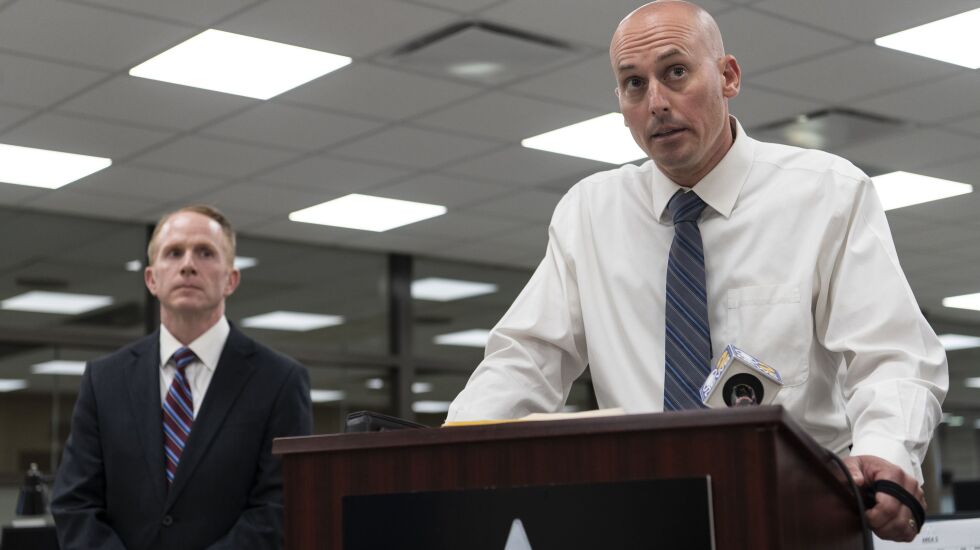
Eric Winstrom, the police chief in Grand Rapids, Mich., and a former commander of Area 5 detectives, was Joaquin Mendoza’s former boss and testified before the pension board that the sergeant absolutely contracted the virus on the job and that he deserved a duty disability.
Joaquin Mendoza and other officers were required to go to their jobs every day even when many people in other jobs were allowed to work from home, according to Winstrom.
He said: “100% the reason he got it was because he was working. We were shoving so many officers into buses to go downtown there was no way to maintain social distancing.”
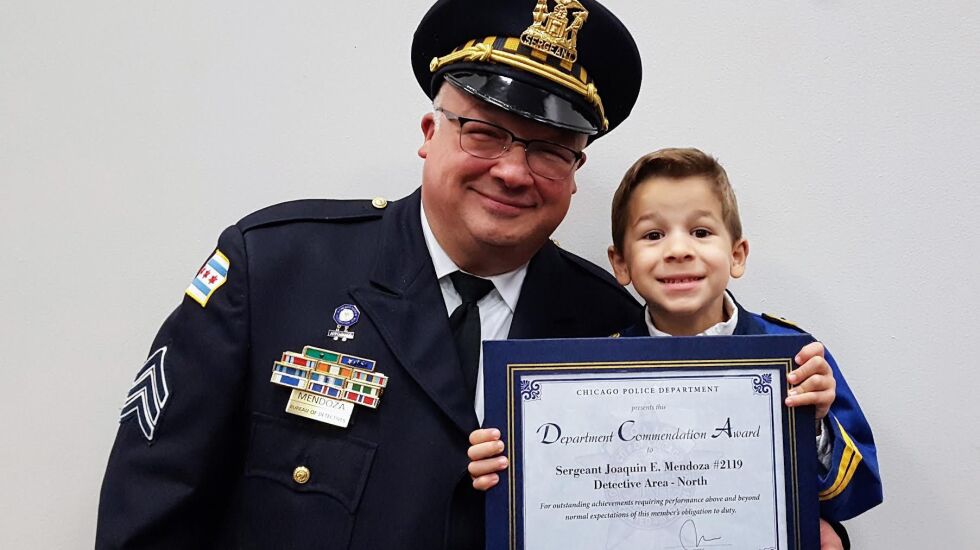
Winstrom described Mendoza as an exceptional sergeant in the detective division, the “first to work and the last to leave, the kind of guy who would work for free.”
Today, Joaquin Mendoza lives in his sister’s basement. He undergoes dialysis treatments three times a week because his kidneys don’t function properly, he walks with the aid of a cane, and he suffers from memory loss because he had five strokes, according to his sister.
The pension board’s independent doctor wrote of Mendoza, “it is more likely than not that his strokes resulted from his COVID-19 infection, which he likely acquired from work.”
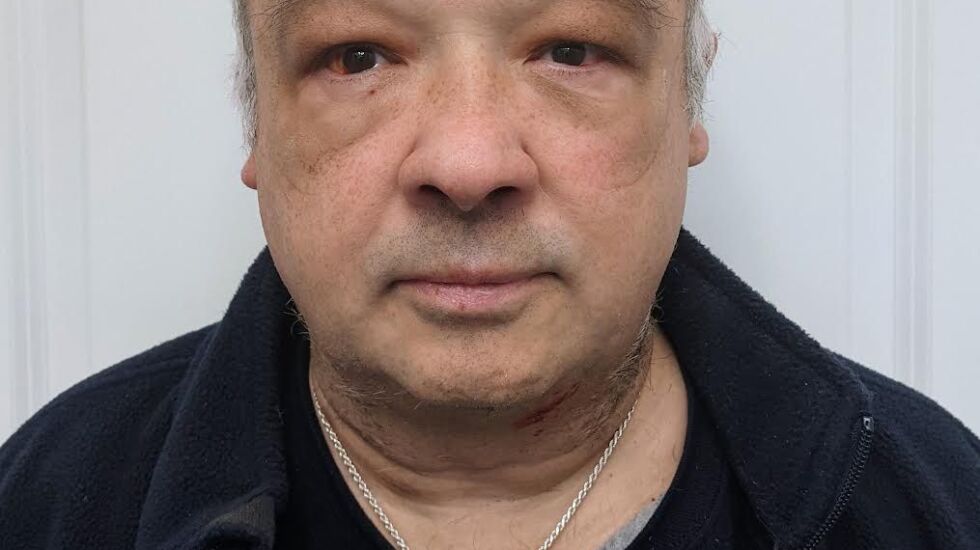
Still, the pension board ruled that Mendoza “failed to demonstrate that he was engaged in an act that involved a special risk.”
And Wilson, the judge, agreed, writing: “A policeman is engaged in an activity inherently involving special risk whenever he is engaged in the performance of a duty peculiar to that of the office of a police officer, that is, to protect and serve the public. Here, since [Joaquin Mendoza] is unable to identify the exact act that he was engaged in when he incurred his COVID-19 infection, the board could not assess in his favor whether said act was peculiar to his job as a police officer. Nor is this court able to now do the same.”
Winstrom called the board’s decision — and the judge’s upholding it — “a travesty.”
“They got it completely wrong,” he said. “It makes it hard for the city to say they value their employees.”







